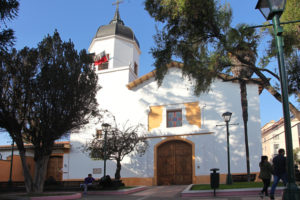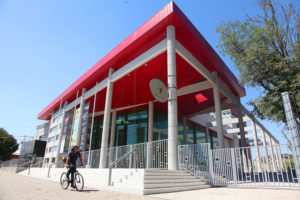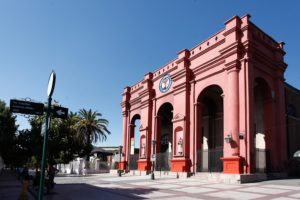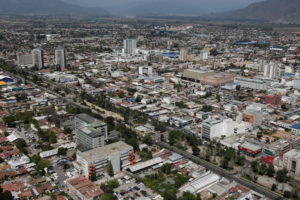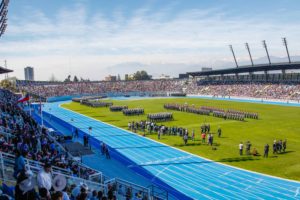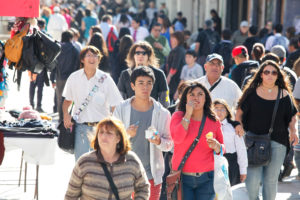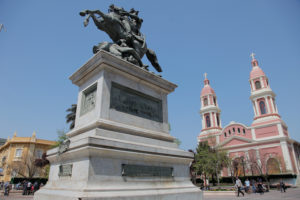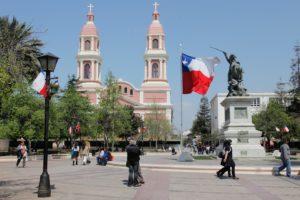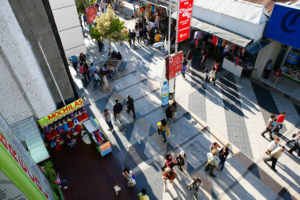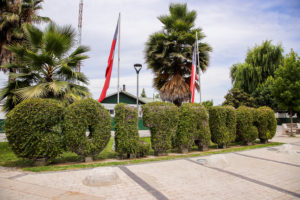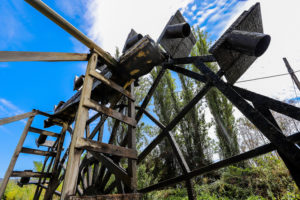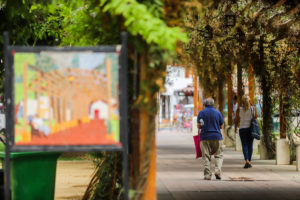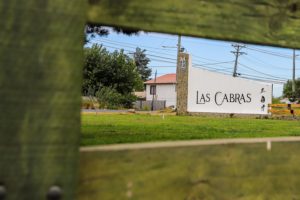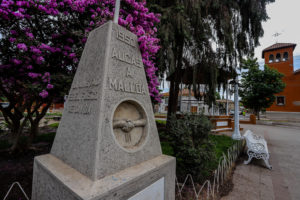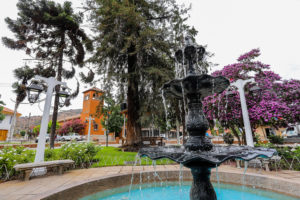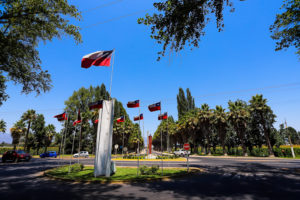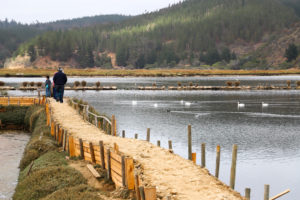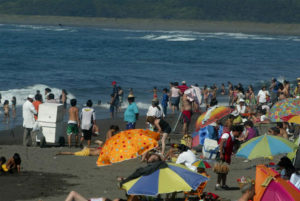Una comunidad global de miembros interesados en la psicología crítica de la salud
A global community of members interested in critical health psychology
Desde el 26 al 28 de julio de 2023 se llevará a cabo la próxima conferencia bienal de ISCHP en las dependencias de la Universidad Estatal de O’Higgins. La organización del evento estará a cargo del comité conformado por Nicolás Schöngut (Instituto de Ciencias de la Salud, Universidad de O’Higgins), Dania Saa (Instituto de Ciencias de la Salud, Universidad de O’Higgins), Camila Oda (Instituto de Ciencias Sociales, Universidad de O’Higgins), Isidora Paiva (Universidad Adolfo Ibañez), Alejandra Energici (Universidad Alberto Hurtado), y Victoria Valdebenito (Universidad Adolfo Ibañez).
Esta será la primera vez que una conferencia de la International Society of Critical Health Psychology se realice en tierras sudamericanas. El evento será híbrido, pudiendo así participar presencialmente o en línea.
En esta oportunidad, el congreso abordará las inequidades globales en salud. El concepto de salud global surge como la idea para un enfoque amplio, colaborativo y transnacional para mejorar la salud de todos los seres humanos en todo el mundo. Sin embargo, esta estrategia entra en tensión con los sistemas políticos dominantes provenientes del capitalismo y el Estado-Nación, los procesos de colonización de los países europeos, las ideologías neoliberales y el individualismo, junto al fortalecimiento del economicismo y la tecnocracia, por encima de la política y la comunidad como criterio de decisión.
En consecuencia, “el privilegio de la buena salud”, ya sea en la promoción, prevención o curación de enfermedades, se distribuye heterogéneamente en todo el mundo. En la decimotercera edición de la Sociedad Internacional de Psicología Crítica de la Salud, la invitación es a cuestionar los temas, métodos y teorías que subyacen a la producción de salud desigual en todo el planeta.
Contacto: ischp@uoh.cl
From July 26-28, the next biennial ISCHP conference will take place at the O’Higgins State University campus. The event’s organization will be in charge of the committee conformed by Nicolás Schöngut (Institute of Health Sciences Universidad de O’Higgins), Dania Saa (Institute of Health Sciences, Universidad de O’Higgins), Camila Oda (Institute of Social Sciences, Universidad de O’Higgins), Isidora Paiva (Universidad Adolfo Ibañez), Alejandra Energici (Universidad Alberto Hurtado), y Victoria Valdebenito (Universidad Adolfo Ibañez).
This will be the first time that a conference of the International Society of Critical Health Psychology is held in South America. This will be a hybrid event, thus being able to participate in person or online.
In this opportunity, the conference will tackle the subject of Global Health Inequalitites. Global Health emerges as the idea of a broad collaborative and transnational approach to accomplish health for all humans around the globe. However, this strategy comes into tension with the dominant political systems that come from capitalism and the Nation-State, the colonization processes of European countries, neoliberal ideologies, and the strengthening of individualism. Together with the strengthening of economism and technocracy, above politics and the community as decision-making criteria.
Consequently, “the privilege of good health,” whether in the promotion, prevention, or cure of diseases, is distributed heterogeneously around the world. In the thirteenth edition of the International Society of Critical Health Psychology, the invitation is to question the issues, methods, and theories that underlie the production of unequal health around the planet.
Contact: ischp@uoh.cl
Call for papers, inscripción y valores del congreso
Call for papers, registration and conference fees
Ya están abiertas las postulaciones para presentar en la XIII versión del congreso ISCHP, hasta el 15 de marzo de 2023. Las inscripciones para la conferencia comenzarán en marzo.
Para hacer tus envíos y conocer más sobre el proceso de inscripción, y los valores del congreso, debes visitar https://tinyurl.com/ischp2023-submit.
Submissions to present at the XIII version of the ISCHP 2023 conference are now open until March 15, 2023. Registration for the conference will begin in March.
To make your submissions and learn more about the congress’s registration process and fees, visit https://tinyurl.com/ischp2023-submit.
Expositores/as principales
Keynote Speakers
Dra. Florencia Herrera
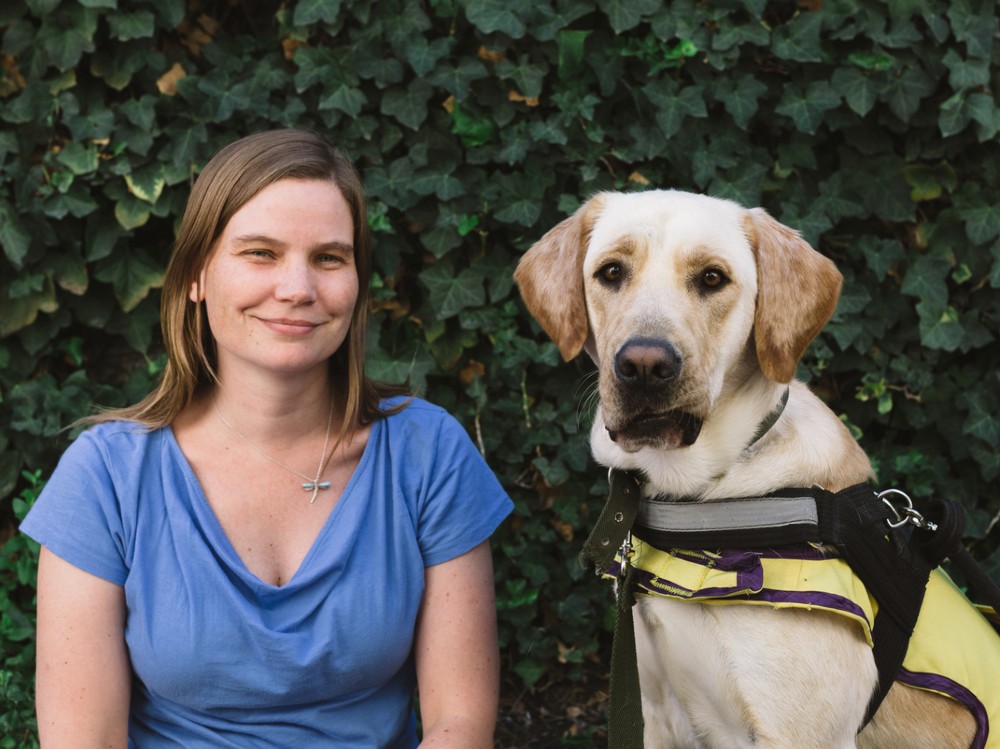
Mi nombre es Florencia Herrera. Soy socióloga de la Pontificia Universidad Católica de Chile y Ph.D. en Antropología Social y Cultural de la Universidad de Barcelona. Soy Profesora Asociada de la Facultad de Sociología de la Universidad Diego Portales (Chile). Mis áreas de interés están relacionadas con la crianza -incluidas sus formas no hegemónicas, como la crianza LGBT, la reproducción asistida y la adopción- y la discapacidad y las metodologías cualitativas. Mi experiencia como investigadora con discapacidad visual y madre me ha llevado a investigar las experiencias de crianza de las personas con discapacidad en Chile. Soy investigadora principal del proyecto FONDECYT Regular N° 1210575, “Procesos reproductivos y experiencias parentales de personas con discapacidad en Chile” (2021-2024). Soy directora del Núcleo Milenio sobre Discapacidad y Ciudadanía (DISCA). Este proyecto estudia los procesos por los que las personas con discapacidad se convierten en ciudadanos. También he publicado libros para niños sobre discapacidad, democracia e inclusión.
My name is Florencia Herrera. I am a sociologist from the Pontifical Catholic University of Chile and a Ph.D. in Social and Cultural Anthropology from the University of Barcelona. I am an Associate Professor at the School of Sociology at Diego Portales University (Chile). My areas of interest are related to parenting -including its non-hegemonic forms, such as LGBT parenting, assisted reproduction, and adoption-and disability and qualitative methodologies. My experience as a researcher and a mother with visual disabilities has led me to investigate the parenting experiences of people with disabilities in Chile. I am the primary researcher in the FONDECYT Regular project No. 1210575, “Reproductive processes and parental experiences of people with disabilities in Chile” (2021-2024). I am the director of the Disability and Citizenship Millennium Nucleus (DISCA). This project studies the processes by which people with disabilities become citizens. I have also published children’s books on disability, democracy, and inclusion.
Alberto Vasquez Encalada
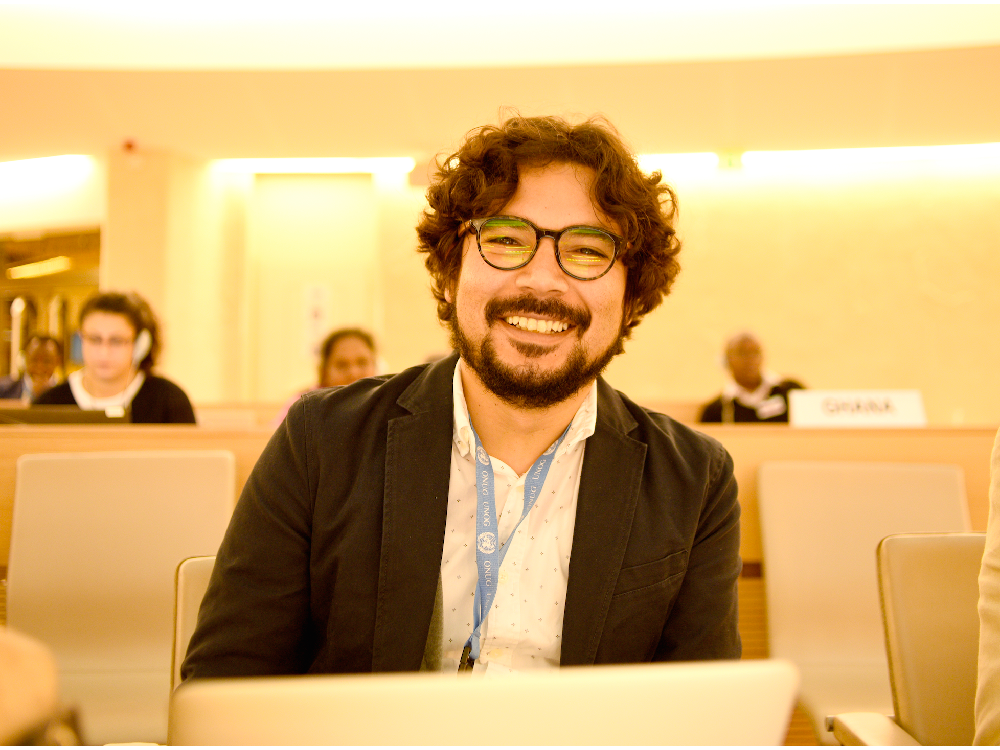
Alberto Vásquez Encalada es abogado y experto en derechos humanos, discapacidad y salud mental. Es codirector del Center for Inclusive Policies (CIP) con sede en Washington, D.C. y Ginebra, y tiene un Máster en Derecho y Política Internacional y Comparada sobre Discapacidad por la Universidad Nacional de Irlanda, Galway. Anteriormente se desempeñó como Coordinador de Investigaciones en la Oficina de la Relatora Especial de las Naciones Unidas sobre los Derechos de las Personas con Discapacidad. Asimismo, ha trabajado como consultor para diferentes agencias de las Naciones Unidas, incluyendo la Oficina Ejecutiva del Secretario General, la Organización Mundial de la Salud, UNICEF y la Oficina del Alto Comisionado para los Derechos Humanos. En Perú, ha trabajado como Asesor Principal de la Comisión de Inclusión Social y Personas con Discapacidad del Congreso de la República, así como comisionado en el Programa sobre los derechos de las personas con discapacidad de la Defensoría del Pueblo. Es Presidente de Sociedad y Discapacidad – SODIS y miembro del directorio del Disability Rights Fund (DRF), el Bank Information Center (BIC) y la Redesfera Latinoamericana de la Diversidad Psicosocial.
Alberto Vásquez Encalada is a lawyer and expert in human rights, disability, and mental health. He is co-director of the Washington, D.C.-based Center for Inclusive Policies (CIP) in Geneva. He has an MA in International and Comparative Disability Law and Policy from the National University of Ireland, Galway. He previously served as a Research Coordinator at the Office of the United Nations Special Rapporteur on the Rights of Persons with Disabilities. In addition, he has worked as a consultant for different United Nations agencies, including the Executive Office of the Secretary-General, the World Health Organization, UNICEF, and the Office of the High Commissioner for Human Rights. In Peru, he has worked as Principal Advisor of the Commission for Social Inclusion and People with Disabilities of the Congress of the Republic, as well as a commissioner in the Program on the rights of people with disabilities of the Ombudsman’s Office. He is the President of Society and Disability – SODIS and a member of the board of directors of the Disability Rights Fund (DRF), the Bank Information Center (BIC), and the Latin American Network for Psychosocial Diversity.
Dra. Irmgard Tischner
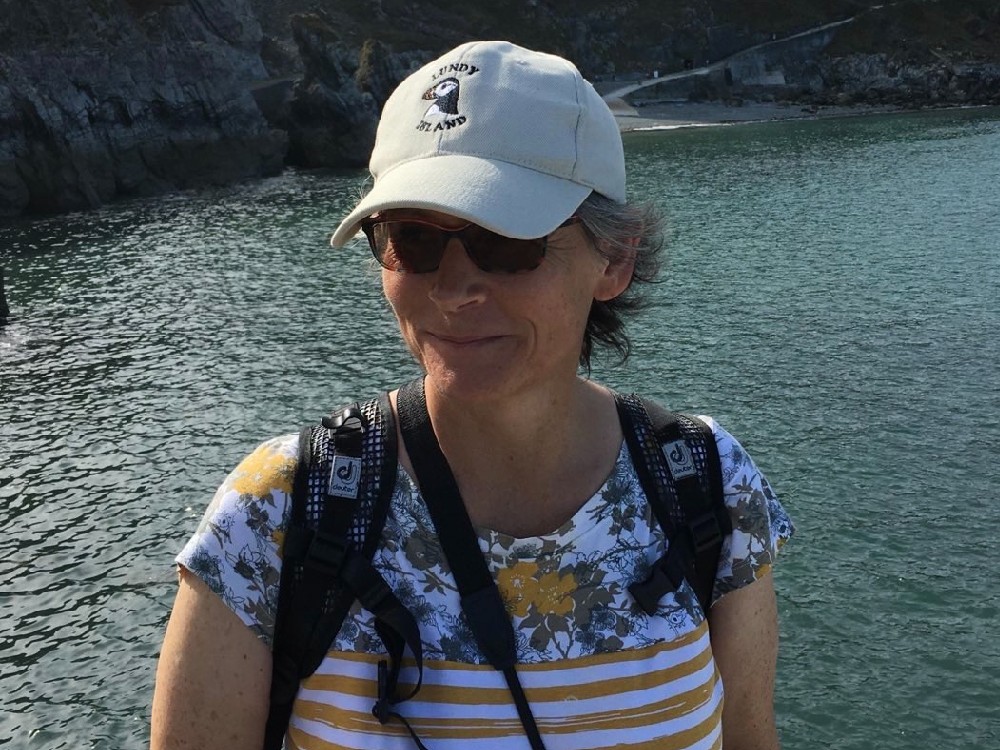
Irmgard es psicóloga crítica (de la salud) y profesora de investigación social y de salud cualitativa en el Instituto de Tecnología de Deggendorf, Alemania; ella ha sido miembro de ISCHP desde su tiempo como Ph.D. estudiante, lo que parece hace mucho tiempo. Irmgard tiene un gran interés en temas de salud, género y justicia social, como el posicionamiento y representación de las mujeres en las sociedades contemporáneas y las desigualdades sociales en salud en las sociedades neoliberales, entre otros temas. Su investigación se centra en la naturaleza productiva del lenguaje y los discursos dominantes sobre salud, género y sociedad, explorando discursos sobre el peso corporal y la responsabilidad por la salud. Actualmente forma parte de un proyecto de investigación internacional que explora las interacciones de género en las reuniones en línea. Irmgard utiliza predominantemente el discurso y el análisis temático reflexivo para interpretar sus datos. En su tiempo libre, se la puede encontrar montando en bicicleta (reclinada) o haciendo senderismo en la campiña bávara.
Irmgard is a critical (health) psychologist and Professor of Qualitative Health and Social Research at Deggendorf Institute of Technology, Germany; she has been a member of ISCHP since her time as a Ph.D. student – which seems a very long time ago. Irmgard has a keen interest in health, gender, and social justice issues, such as the positioning and representation of women in contemporary societies and social inequalities in health in neoliberal societies, among other issues. Her research focuses on the productive nature of language and the dominant discourses on health, gender, and society, exploring discourses of body weight and responsibility for health. She is currently part of an international research project exploring gender interactions in online meetings. Irmgard predominantly uses discourse and reflexive thematic analysis to interpret her data. In her spare time, she can be found cycling (on a recumbent) or hiking in the Bavarian countryside.
Rancagua, Chile: sede de la XIII Conferencia de la International Socieyt of Critical Health Psychology
Rancagua, Chile: venue for the XIII Conference of the International Society of Critical Health Psychology
La experiencia de participar en un nuevo Congreso del International Society of Critical Health Psychology, por primera vez realizado en Sudamérica, conllevará conocer su ciudad sede.
Rancagua es una ciudad que representa fielmente la tradición huasa del campo chileno. Catalogada como tierra fértil, destaca por su producción agrícola, sus viñedos y por su invaluable riqueza patrimonial, todo lo cual se funde con su estrecha vinculación a la explotación del cobre. Se ubica a poco más de una hora desde Santiago, la capital nacional, y es la sexta región del país.
The experience of participating in a new Congress of the International Society of Critical Health Psychology, for the first time held in South America, will entail knowing its host city.
Rancagua is a city that faithfully represents the “huaso” tradition of the Chilean countryside. Classified as fertile land, it stands out for its agricultural production, its vineyards, and its invaluable heritage wealth, all of which merge with its close ties to the exploitation of copper. It is located just over an hour from Santiago, the national capital, and is the sixth region of the country.
The conference offers the possibility to participate in its social activities. These activities of the ISCHP 2023 conference are not included in the registration fee and are optional, except for the Welcome Reception Cocktail, which is included in the registration fee. Other social program activities include small group restaurant excursions in Rancagua and guided tours to places of interest, such as historical landmarks such as the old mining city of Sewell, and a visit to a Winery. We will announce these activities’ dates and costs after the registration process has begun in March.
Para más información sobre la Región de O’Higgins, visita el sitio web Chile es tuyo.
For more information on the O’Higgins Region, visit the “Chile es tuyo” website.
¿Cómo llegar a Rancagua?
How to get to Rancagua?
Tren / Train
Uno de los medios de transporte con los cuales se puede llegar a Rancagua es el tren. La Empresa de Ferrocarriles del Estado (EFE) cuenta con un servicio desde Estación Central (Santiago) a Rancagua, uniendo a ambas ciudades en tan sólo una hora y 10 minutos.
Para planificar el viaje, se debe acceder al sitio web de EFE. Ahí, hay que seleccionar el servicio Tren Rancagua – Estación Central, marcar la fecha de ida y automáticamente aparecerán en pantalla todas las salidas disponibles, junto a su hora de llegada y valor.
Más información en efe.cl.
One of the means of transportation with which you can get to Rancagua is the train. The State Railway Company (EFE) has a service from Central Station (Santiago) to Rancagua, linking both cities in just one hour and 10 minutes.
To plan the trip, you must access the EFE website. There, you have to select the Rancagua Train – Central Station service, mark the departure date and all available departures will automatically appear on the screen, along with their arrival time and value.
More information at efe.cl.
Bus / Bus
Otra manera de llegar a Rancagua es mediante bus. En la ciudad se encuentran disponibles dos terminales de buses que cuentan con servicio de arribo y salida desde este lugar a otra ciudades del país: Terminal O’Higgins y Turbus.
Para conocer itinerarios y valores, puedes visitar el sitio web de tu empresa de buses de preferencia.
Another way to get to Rancagua is by bus. In the city, there are two bus terminals available that have arrival and departure services from this place to other cities in the country: Terminal O’Higgins and Turbus.
To know itineraries and prices, you can visit https://www.recorrido.cl/
Auto / Car
Para quienes prefieran viajar de manera particular, también está la opción de movilizarse en auto.
La ruta a tomar y duración del viaje dependerá de la zona desde donde se desplace quien visite la conferencia del International Society of Critical Health Psychology.
For those who prefer to travel individually, there is also the option of getting around by car.
The route to be taken and the duration of the trip will depend on the area from which the person visiting the conference of the International Society of Critical Health Psychology is traveling.
Servicio turístico / Tourist Service
Si quieres encontrar información de servicios turísticos disponibles en Rancagua y sus alrededores, tales como agencias de viajes, hoteles, restaurantes, entre otros, visita el sitio web del Servicio Nacional de Turismo (Sernatur) o la sección sobre la Región de O’Higgins en Chile es tuyo.
If you want to find information about tourists services availables at Rancagua and nearby cities, such as travel agencies, hotels, restaurants, and others, visit the Servicio Natural de Turismo (Sernatur) website, or the section about the O’Higgins region in Chile es tuyo.
Galería fotográfica de la Región de O’Higgins / O’Higgins Region Photo Gallery
